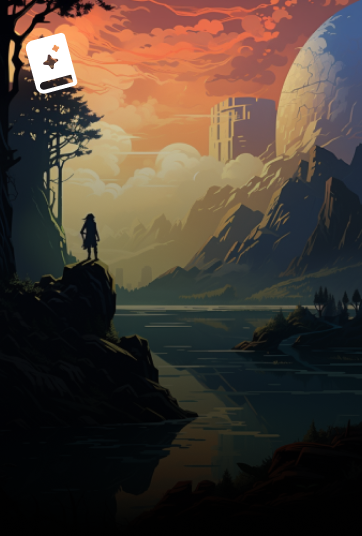

The Sandman, Vol. 7: Brief Lives
Ratings90
Average rating4.4
Dream's youngest sister, the loopy Delirium, convinces him to go on a quest for their missing brother, Destruction. But Dream may learn that the cost of finding his prodigal sibling is more than he can bear. collecting The Sandman #41–49
Series
Featured Series
9 primary books33 released booksThe Sandman
The Sandman is a 33-book series with 11 primary works first released in 1988 with contributions by Neil Gaiman, Нийл Геймън, and Joe Hill.
Reviews
Popular Reviews
Reviews with the most likes.
Solid 4.5
That was a good story through and through. We meet Dream's sister Delyrium, and his long lost brother Destruction. Dream is softening. He is growing a heart and soul. Or maybe now it's just coming to the forefront. Regardless, it was a refreshing change. I also enjoyed how it gave closure to another revolving character.
This volume is right up there as one of my favourite volumes, probably the favourite. It is profoundly well-written and the story well-told. No summary would do it justice so I'm going to keep it brief. Brevity is the major theme of the volume; the implication is change. Even immortality can be considered brief, depending on the scale you use. This inevitability of change is highlighted and stressed upon in Dream's journey with Delirium to seek Destruction, their brother who broke ties with them centuries before. We see the changes take effect on Dream and some of his siblings as his journey comes to a close, on a beautiful yet tragic close of the Orpheus arc. As a strong plus, each of the Endless siblings gets some time in the limelight in this volume. And painting even more of this beautifully crafted existence, we are given to know of the beginning of the Endless and hints of their natures, of the existence of other practically immortal beings, and of the inevitability of change.
Call me crazy but I'm just not overly fond of the family dynamic of the Endless, and this series, which surrounds Delirium's quest to find their estranged brother Destruction, solidified that feeling in a way. That said, the last two chapters do bring the rest of the story together quite well, and redeemed the previous chapters for me.
There's just certain inconsistencies that don't make sense for me, like why do all the Endless have a realm. When people dream they enter that realm, and that also makes sense with death and maybe delirium, but people do not enter the realm of destruction when they destroy, for example. Basically the role of these characters and their realms seems inconsistent, and it kind of bugs me. This volume addresses aspects of that towards the end, as Destruction points out that there is no need for him to direct or interfere in the destructive changes of the universe, but it still seems like these characters are created more for the lyricism and alliteration than for any deep purpose of the aspects' role in life.
This was a classic journey tale, well told and full of wisdom with meditations on change and the role of reason in our lives. It is beautifully drawn. It is a vital work of literature, but considering this series' legendary status, I felt this volume a little trying.
































